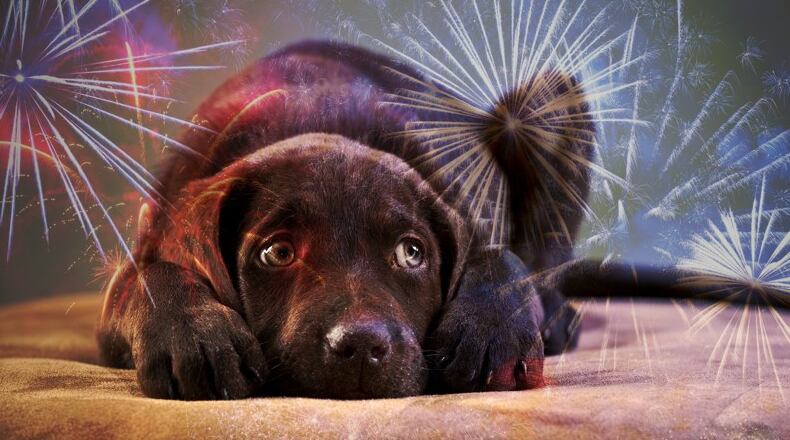>> RELATED: Humane Society offers tips for pet safety during Fourth of July
State Farm offers these pet safety tips during fireworks:
- Loud, crowded firework displays are no fun for pets, they can become frightened or disoriented by the sound. Please resist the urge to take them to Independence Day festivities and instead keep them safe from the noise in a quiet, sheltered and escape-proof area at home.
- Never use fireworks around pets. While exposure to lit fireworks can potentially result in sever burns and/or trauma to the face and paws of curious pets, even unused fireworks can pose a danger. Many types contain potentially toxic substances, including potassium nitrate, arsenic and other heavy metals.
- Don't put glow jewelry on your pets or allow them to play with it. While the luminescent substance contained in these products is not highly toxic, excessive drooling and gastrointestinal irritation could still result from ingestion and intestinal blockage could occur from swelling large pieces of the plastic containers.
- Always keep matches and lighter fluid out of your pets' reach. Certain types of matches contain chlorates, which could potentially damage blood cells and result in difficulty breathing or even kidney disease in severe cases. Lighter fluid can be irritating to skin and if ingested can produce gastrointestinal irritation and central nervous system depression.
- Keep your pets on their normal diet. Any change, even for one meal, can give your pet severe indigestion and diarrhea. This is particularly true for older animals who have more delicate digestive systems and nutritional requirements. Keep in mind that foods such as onions, chocolate, coffee, avocado, grapes, raisins, salt and yeast dough can all be potentially toxic to companion animals.
- Don't put insect repellent on your pet that isn't specifically for pet use. The same tip applies to "people" sunscreen. What isn't toxic to humans can be toxic to animals.
- Never leave your pet in your car when it's warm outside. Vehicle interiors heat up much faster than the air around them and even a short time in a locked car can be dangerous to pets.
- Be prepared in the event that your pet does escape. Keep your pets' ID up to date. It's a good idea for all your animal companions, even indoor only pets, to always wear a collar with an ID tag that includes your name, current phone number and any relevant contact information.
In Other News
1
20 people involved in fight in Hamilton when shooting occurred
2
Power outage in Hamilton caused by bird
3
Hamilton’s Community First Solutions continues its strategic expansion
4
Liberty Twp. not allowing short-term rentals as residents complain...
5
Food Town shooting case sent to Butler County grand jury
About the Author
